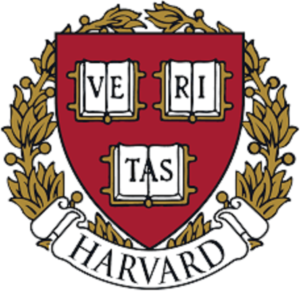The Volokh Conspiracy
Mostly law professors | Sometimes contrarian | Often libertarian | Always independent
My NBC Article on the Affirmative Action Cases Accepted by the Supreme Court.
The article explains key issues in the case, and outlines what I think the Court should do.
NBC News just posted my article on what the Supreme Court should do in the two affirmative action cases it agreed to hear earlier today. Here is an excerpt:
The Supreme Court on Monday agreed to review Students for Fair Admissions v. President and Fellows of Harvard College, a case challenging the use of race in admissions at the Ivy League institution. It will also hear a similar case against the University of North Carolina at Chapel Hill.
This litigation highlights a number of long-standing flaws in the "diversity" rationale for racial preferences embraced by previous court decisions and adopted by colleges around the country. The Harvard case also features extensive evidence indicating the school's admissions system specifically discriminates against Asian American applicants — not just by comparison with other racial minorities but even relative to whites. In the Harvard case, the Supreme Court will for the first time consider this increasingly troubling aspect of affirmative action policy.
If courts stuck closely to the text of the laws they interpret, the case against Harvard would be an easy one for the school to lose. As a private institution, Harvard is not bound by constitutional constraints against racial discrimination (UNC, by contrast, is a public university). But it is subject to Title VI of the Civil Rights Act of 1964, since it receives federal funds for student financial aid and other purposes. Title VI bars discrimination "on the ground of race, color, or national origin" in any education program receiving federal funds, and it doesn't exempt well-intentioned racial discrimination in the form of affirmative action.
But the Supreme Court (wrongly, in my view) has long interpreted Title VI to allow racial preferences in situations where the court's interpretation of the equal protection clause of the 14th Amendment would permit them. And a series of Supreme Court rulings…. have held that racial preferences in higher education admissions are permissible under the 14th Amendment in some situations in which they are used to promote educationally beneficial "diversity…"
When the court considers the Harvard and UNC cases, it would do well to reject the "diversity" rationale entirely, or at least subject it to much tougher standards of review….
[T]he racial and ethnic categories used by Harvard and many other universities make little sense. As one expert in an amicus brief supporting the plaintiffs pointed out, the "Hispanic" or "Latino" category lumps together such varied groups as Argentinians, Cubans, Mexicans and immigrants from Spain. "Asian Americans" include racial and ethnic groups that cover more than half the world's population, such as Chinese people, Indians and Filipinos, among others….
Needless to say, these groups have vastly different histories. Lumping them into a few crudely defined categories makes a mockery of the idea that universities are genuinely pursuing diversity as opposed to engaging in gross stereotyping.
Perhaps even worse, the diversity rationale could be used to justify all kinds of racial and ethnic preferences….
[I]f compensatory justice is the true goal, Harvard's and other institutions' discrimination against Asian American applicants is even more egregious. Asian groups such as Chinese and Japanese Americans were themselves victims to a long history of discrimination by state and federal governments….
Such anti-Asian discrimination is not limited to Harvard, but has also arisen in admissions policy elsewhere….
Sadly, these policies are often pursued by progressives for the well-intentioned purposes of promoting equality and diversity. But good intentions are not enough….
The political right has its own awful record of anti-Asian bigotry. But the wrongs of one side of the political spectrum cannot justify those of the other.
NOTE: As pointed out in the article, my wife, Alison Somin, has coauthored an amicus brief urging the Supreme Court to hear the Harvard case, and is also co-counsel for the plaintiffs in a case challenging anti-Asian discrimination at the Thomas Jefferson High School for Science and Technology, in Fairfax, Virginia.



Show Comments (46)